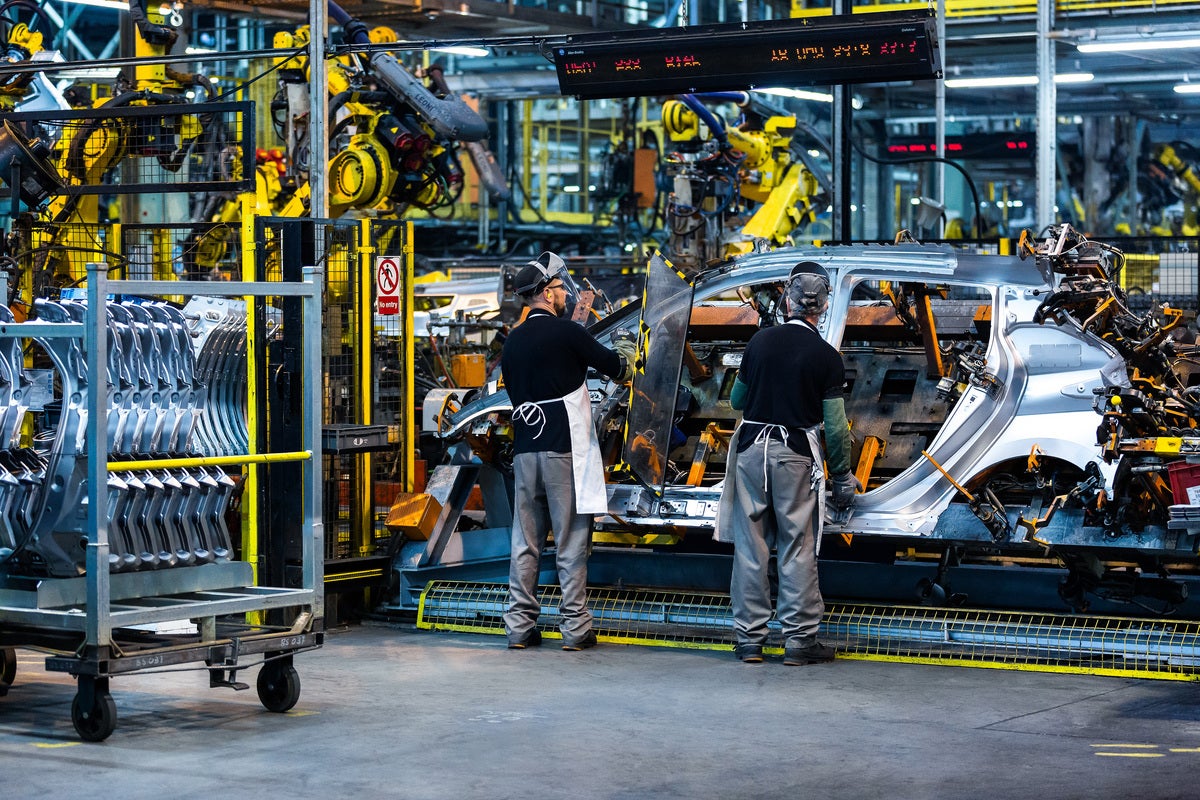
UK car production declined 41.4% in October as factories turned out 64,729 units, according to the latest figures released today by the Society of Motor Manufacturers and Traders (SMMT).
It was the fourth straight month of decline and the weakest October since 1956 as firms grappled with the global shortage of semiconductors which led to production stoppages. The weak output totals compared to last year are exacerbated by the closure of a UK car plant at the end of July, a deficit that will impact figures for a year, the SMMT noted.

Discover B2B Marketing That Performs
Combine business intelligence and editorial excellence to reach engaged professionals across 36 leading media platforms.

On a positive note, production of the latest battery electric (BEV), plug-in hybrid (PHEV) and hybrid (HEV) vehicles comprised 30.9% of all cars made in October. BEV manufacturing rose 17.5% to 8,454 units, meaning that, so far this year, UK car makers have produced more than 50,000 zero emission vehicles, exceeding the total built in the whole of the pre-pandemic 2019.
Production for both domestic and overseas markets fell by double digits in the months, down 37.9% and 42.1% respectively.

The SMMT noted that over 80% of all cars made were for export with most of these (60%) bound for the EU. Overall, however, shipments to the EU fell by a relatively modest 29.2%, whilst those to Japan were down 57.1% and to the US down 67.0%.
The monthly performance means that year-to-date output is below 2020, down 2.9% to 721,505 units, underscoring the impact semiconductor shortages and structural changes are having, even compared to a year in which UK automotive production was badly affected by factory stoppages arising from the first lockdowns.
The latest independent production outlook report (prepared for the SMMT) forecasts UK car and light commercial vehicle (LCV) production to be below one million for the second consecutive year, but to then recover to over one million in 2022, with the potential to reach 1.2 million in 2024 if competitive conditions prevail.
Mike Hawes, SMMT Chief Executive, said: “These figures are extremely worrying and show how badly the global semiconductor shortage is hitting UK car manufacturers and their suppliers. Britain’s automotive sector is resilient but with Covid resurgent across some of our largest markets and global supply chains stretched and even breaking, the immediate challenges in keeping the industry operational are immense. Government can help the industry with measures to boost competitiveness in line with global rivals, notably in tackling high energy costs, supporting employment and training, and helping businesses whose cashflow is under pressure from these historically poor production numbers.”
GlobalData analysis (below chart) of major vehicle markets across the world shows how the industry recovered sharply after the market shutdowns of 2020, but has fallen back since due mainly to supply chain issues (especially semiconductor shortages) that have constrained sales.







